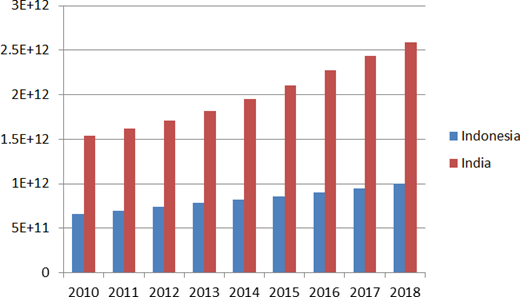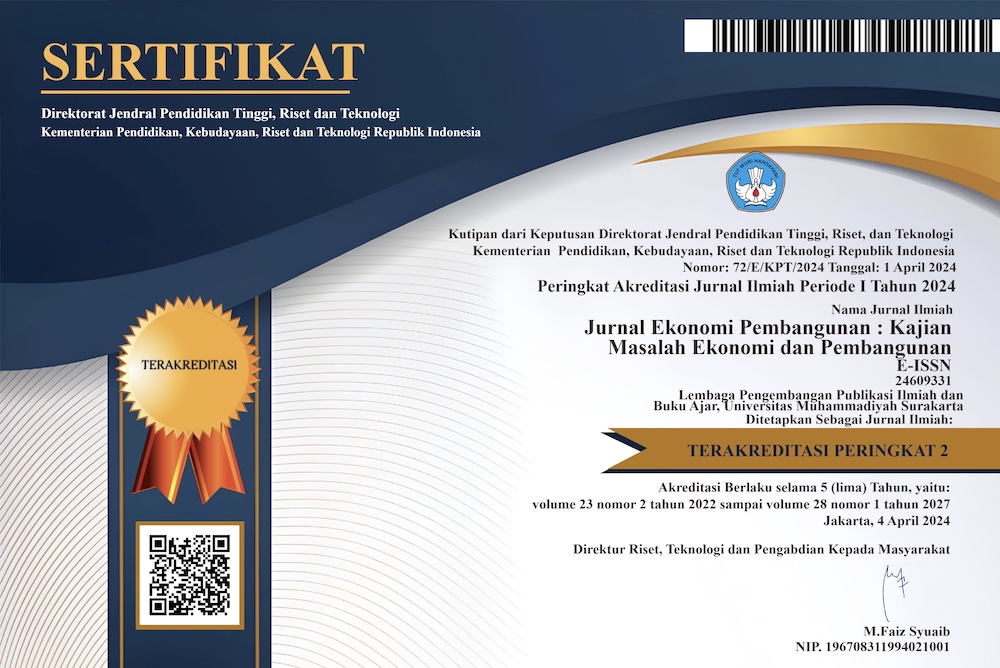Testing the Environmental Kuznets Curve (EKC) Hypothesis in Indonesia and India: Autoregressive Distributed Lag (ARDL) Model Approach
DOI:
https://doi.org/10.23917/jep.v24i2.23191Keywords:
ARDLM, EKC, Emission CO2, EnvironmentAbstract
The achievement of economic growth is equally important as environmental sustainability. Economic growth is considered capable of enhancing the overall welfare of society. However, there is a sacrifice stemming from economic growth in the form of negative external impacts. Therefore, the objective of this study is to examine the Environmental Kuznets Curve (EKC) hypothesis in Indonesia and India. The EKC hypothesis connects economic growth with CO2 emissions. The Autoregressive Distributed Lag (ARDL) model is employed to assess both the long-term and short-term impacts of economic growth on CO2 emissions in Indonesia and India. Additionally, the study seeks to comprehend the applicability of the Environmental Kuznets Curve (EKC) hypothesis in these countries over the period of 1965-2021. The research findings indicate that economic growth has a significant impact on CO2 emissions in the short term, but this influence is not sustained in the long term in Indonesia. In contrast, in India, economic growth does not exhibit a significant effect on CO2 emissions in the short term, but it does have a notable impact in the long term. This implies that Indonesia does not align with the Environmental Kuznets Curve (EKC) hypothesis in the long term, while India is anticipated to adhere to the EKC hypothesis in the future.
Downloads
















